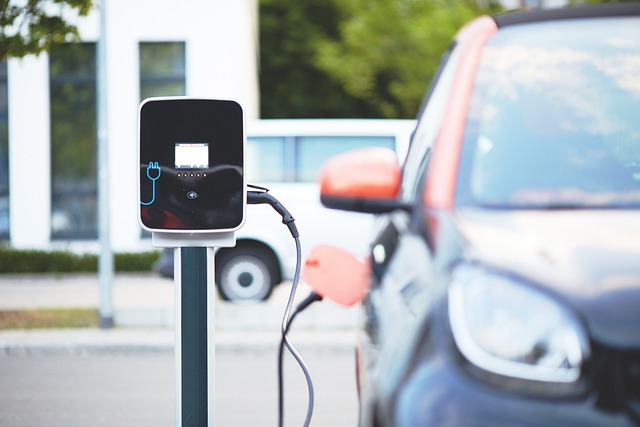Understanding Commercial EV Charging Infrastructure: A Comprehensive Guide
Electric vehicle adoption is accelerating globally, creating unprecedented demand for reliable charging infrastructure. Commercial EV charging stations have become essential components of modern development projects, retail locations, and public spaces. These stations serve multiple purposes beyond simply charging vehicles—they attract customers, increase property values, and demonstrate environmental commitment. This article explores the key considerations for commercial EV charging infrastructure, including selection criteria, installation requirements, and the equipment that powers this growing industry.

Commercial EV Charging Station Options for Business Owners
Commercial EV charging stations differ significantly from residential chargers in terms of power delivery, durability, and management capabilities. Most commercial installations utilize Level 2 AC charging (7-22kW) or DC fast charging (50-350kW), depending on the intended use case. Level 2 stations work well for locations where vehicles park for extended periods, such as workplaces, hotels, and shopping centers. DC fast chargers are more appropriate for corridor travel, fleet depots, and locations where drivers need quick charging sessions. When selecting a commercial charging solution, businesses should consider charging speed requirements, expected utilization, available electrical capacity, and network management features that enable pricing controls and usage monitoring.
EV Charging for Developers: Integration Strategies and Benefits
Property developers are increasingly incorporating EV charging infrastructure into new construction projects. This forward-thinking approach offers numerous advantages: meeting local building code requirements, attracting environmentally conscious tenants, and future-proofing investments. When planning EV infrastructure, developers should consider power needs during initial electrical design, ensuring adequate capacity for both immediate installations and future expansion. Strategic placement is also crucial—charging stations should be visible, accessible, and positioned to maximize convenience while minimizing installation costs. Many developers are also exploring revenue-sharing models with charging network operators, creating additional income streams while providing essential amenities for building occupants.
EV Charging Stations Installation Contractors: What to Look For
Selecting qualified contractors for EV charging installation requires careful consideration of several factors. Experienced installation contractors should possess electrical expertise, specific EV charging certification, and familiarity with local electrical codes and utility requirements. Contractors should demonstrate experience with similar commercial installations and provide comprehensive services including site assessment, electrical upgrades, installation, commissioning, and maintenance planning. Before selecting an installation partner, businesses should request references, verify proper licensing and insurance coverage, and ensure the contractor can navigate utility connection requirements, permitting processes, and any available incentive programs that might offset installation costs.
EV Charging Station Manufacturers in Europe: Leading Providers
Europe stands at the forefront of EV charging innovation, with numerous manufacturers developing advanced charging technologies. Major European manufacturers include ABB (Switzerland), which offers a wide range of AC and DC charging solutions from 7kW to 350kW with robust network management; Schneider Electric (France), specializing in integrated building and EV charging systems; Wallbox (Spain), known for innovative load management and compact commercial designs; Alfen (Netherlands), offering smart charging stations with integrated load balancing; and EVBox (Netherlands), providing modular, scalable charging solutions for various commercial applications. European manufacturers typically emphasize design aesthetics, durability, and advanced features like dynamic load management and open payment systems.
Electric Vehicle Supply Equipment: Technical Specifications and Standards
Electric Vehicle Supply Equipment (EVSE) encompasses the hardware, software, and electrical connections that facilitate EV charging. Commercial EVSE must meet specific technical standards to ensure safety, interoperability, and reliability. Key components include charging connectors (typically Type 2 in Europe and J1772 in North America for AC charging, and CCS or CHAdeMO for DC fast charging), power management systems, user interfaces, network communication modules, and protective circuitry. Modern commercial EVSE often includes features like RFID authentication, cellular/WiFi connectivity, energy metering, load management capabilities, and OCPP (Open Charge Point Protocol) compliance for network interoperability. When selecting EVSE, businesses should prioritize equipment that meets regional safety certifications, offers robust warranty coverage, and supports future upgrades.
Cost Considerations for Commercial EV Charging Infrastructure
Installation costs for commercial EV charging infrastructure vary significantly based on several factors, including power requirements, site conditions, and equipment selection. Understanding these costs helps businesses make informed investment decisions.
| Installation Component | Typical Cost Range (EUR) | Key Cost Factors |
|---|---|---|
| Level 2 Charging Equipment (per port) | 2,000 - 7,000 | Power output, network features, brand |
| DC Fast Charging Equipment (per port) | 20,000 - 75,000 | Power output (50-350kW), features |
| Electrical Infrastructure Updates | 5,000 - 30,000+ | Distance to power source, upgrades needed |
| Installation Labor | 3,000 - 15,000 | Site complexity, number of stations |
| Networking & Software Fees | 100 - 300 (monthly) | Features, number of ports, provider |
| Maintenance | 500 - 3,000 (annual) | Equipment type, service contract level |
Prices, rates, or cost estimates mentioned in this article are based on the latest available information but may change over time. Independent research is advised before making financial decisions.
The total investment for a multi-port commercial charging installation typically ranges from €15,000 for basic Level 2 setups to well over €100,000 for high-power DC fast charging installations. However, numerous incentive programs exist throughout Europe to offset these costs, including EU-wide initiatives, national subsidies, and utility rebates that can reduce the total investment by 30-70% in some regions.
Commercial EV charging stations represent a significant evolution in transportation infrastructure. As electric vehicle adoption continues to accelerate, businesses, property developers, and public entities that invest in quality charging solutions position themselves advantageously for the future. By understanding the technical requirements, working with qualified installation contractors, and selecting appropriate equipment from reputable manufacturers, organizations can create charging infrastructure that serves both immediate needs and supports long-term sustainability goals.




